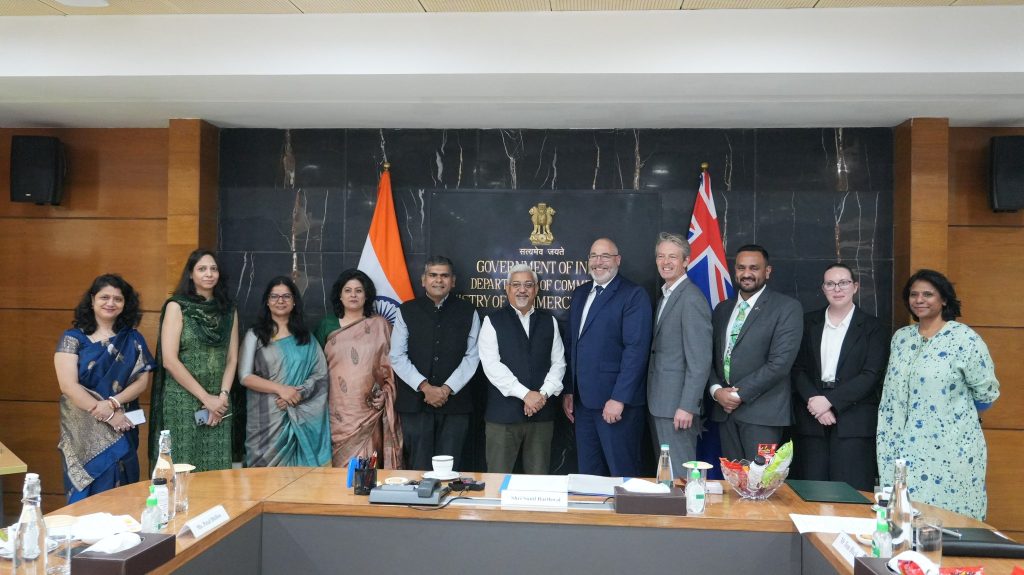Syllabus:
GS-2: Bilateral, regional and global groupings and agreements involving India and/or affecting India’s interests
Context:
Recently, the Mutual Recognition Arrangement (MRA) for organic products between India and Australia has been signed at New Delhi.
Mutual Recognition Arrangement (MRA)
• Implementing Agencies:
- The Agricultural and Processed Food Products Export Development Authority (APEDA), Ministry of Commerce & Industry, India.
- The Department of Agriculture Fisheries and Forestry (DAFF), Government of Australia.
• Key Features of the Arrangement:
- Under the MRA, both the countries will recognise each other’s organic standards and certification systems.
- The arrangement covers organic products that are grown and processed in the two countries.
The MRA covers the following categories:
- Unprocessed plant products (excluding seaweed, aquatic plants, greenhouse crops).
- Processed foods with one or more plant-derived ingredients (including certified organic inputs from third countries, provided regulatory compliance).
- Wine.
Mutual Recognition Arrangement
• It is a formal arrangement between two or more countries or institutions to accept the results of conformity assessments, such as testing, certification, and inspections, performed by the other party’s designated bodies.
Significance and Benefits of the Arrangement
• Income for farmers: Since organic products fetch prices that are 30-40% higher, farmers’ incomes are expected to improve significantly.
• Milestone in India and Australia relation:
- This MRA marks a key milestone in India-Australia relations, demonstrating mutual trust in each other’s organic standards and certification systems.
- This Arrangement demonstrates the shared commitment of the India–Australia Economic Cooperation and Trade Arrangement (ECTA).
• Trade Promotion & Market Access:
- India’s organic exports to Australia in FY 2024–25 were valued at USD 8.96 million, with exports weighing 2,781.58 metric tonnes led by products like psyllium husk, coconut milk, rice.
- MRA is expected to boost India’s Organic exports further by reducing barriers, ensuring certification equivalence, and supporting more organic products and producers.
Challenges and Risks
• Implementation and Monitoring: Ensuring clear separation between organic and non-organic produce, preventing fraudulent claims, and enforcing penalties across borders will present significant challenges.
• Market Saturation and Competition: The rise in exports may increase competition, especially from Australian producers and third-country suppliers, making it essential for India to maintain high quality and cost-effectiveness.
• Logistics and Certification Costs: Despite the MRA, expenses related to certification, inspections, audits, and transportation will persist. To benefit small and marginal farmers, supportive schemes will be necessary.
Recommendations
• Strengthen National Programme for Organic Production: Strengthen the National Programme for Organic Production by regularly updating standards, engaging stakeholders and ensuring rigorous oversight to maintain credibility.
• Diversification of Export Markets: Leverage this MRA as a foundation to pursue similar recognition agreements with other countries and regions, thereby diversifying export markets.
• Capacity Building & Extension Support: Enhance capacity building and extension support through targeted awareness campaigns, training programs, subsidies, and technical assistance to help small farmers meet organic standards.
National Programme for Organic Production
• It is an Indian government initiative, managed by the Agricultural and Processed Food Products Export Development Authority (APEDA).
• It sets standards for organic farming, promotes organic production, and accredits certification bodies to ensure compliance and facilitate the export of organic products.

